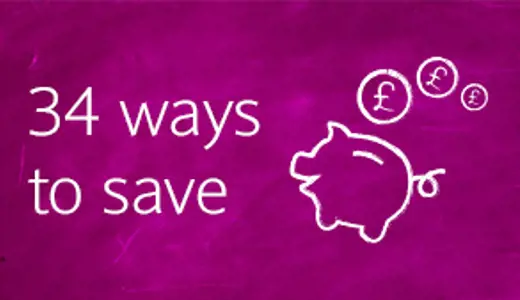How much does borrowing cost?




Sometimes people borrow money from the bank if they don’t have what they need right away. However, you can only do this from the age of 18. Until then you may be able to borrow some money from your family or friends. But be careful not to borrow more than you can pay back – otherwise you could end up letting people down.
Credit cards are one way to borrow. They can certainly make some spending situations a lot simpler. Like debit cards, they’re great for shopping online. Or buying things in a shop when you don’t have cash handy. But, because you’re not handing over actual notes and coins, it’s easy to feel like you’re not spending anything at all.
It’s important to remember that credit cards are not free money... far from it. In fact, credit cards can be quite an expensive option as you also have to pay interest on the money you borrow (more on this later).
What is a credit card and how does it work?
- A credit card is a way to borrow money and pay it back later (unlike a debit card, which only lets you spend money you already have in your current account).
- Your credit card is completely unique to you and has your name and 12-digit credit card number on it.
- All credit cards come with a set ‘credit limit’. This is the maximum amount you can borrow.
- You use a credit card to buy things and get a statement from your card issuer every month showing how much you’ve spent.
- You need to pay back at least the minimum amount shown on the statement – usually between 2% and 5% of the total you owe.
- If you can, you should aim to pay off the full amount each month or your card issuer will charge you monthly interest on the money you still owe – called the ‘outstanding balance’.
- When you use your card in a shop or online, the shop’s bank checks your card electronically with your issuer. Effectively, your card issuer provides a guarantee to the shop that it will get paid. You enter your Personal Identification Number (PIN) to authorise and complete the transaction.
- Credit cards are very versatile and can be used to pay online, over the phone and in millions of places around the world.
How much does a credit card cost?
Credit cards usually have different interest rates for making purchases and cash withdrawals. The higher the rate of interest, the more money you'll pay back on what you spend or take out.
Let’s say you spend £200 on your credit card and pay it off over a year. With a purchase rate of 18.9% p.a. (which stands for ‘per annum’ or per year), you’ll pay an extra £37.80 to your card issuer in interest charges because 18.9% of £200 is £37.80.
Divided by twelve, that’s £3.15 in interest charges a month. It might not sound a lot, but it soon adds up. And the more you leave on your credit card, the more interest you’ll pay.
The cost of borrowing with a credit card – some examples
Amount left on your credit card |
Interest charges per month |
Interest charges per year |
£100 @ 18.9% p.a |
£1.56 |
£18.90 |
£200 @ 18.9% p.a |
£3.15 |
£37.80 |
£500 @ 18.9% p.a |
£7.88 |
£94.50 |
£1,000 @18.9% p.a |
£15.77 |
£189.00 |
Some other ways to borrow
Overdraft
An overdraft is when the balance of your bank account drops below £0. Effectively, you’re borrowing from the bank.
Some banks will let you borrow up to a certain amount as an overdraft for free, while others will charge you interest or a fee if you go as much as a penny overdrawn. It’s worth finding out what your banks policy is, just in case.
Loans
Most people use loans when the amount they need is a bit bigger than they’d usually spend on a credit card. They’re commonly used for things like a new car (when you might get a loan from your bank) or to pay for university (when you’d get a student loan from a separate company)
Like a credit card, you’ll be charged interest on what you borrow, so it’s worth shopping around for a good rate – or even consider whether you’re better off saving up instead.
Mortgage
A mortgage is like a king-sized loan people use to pay for a new house. Mortgages are repaid over a long period of time and are secured by the property you bought with it – meaning, if you don’t keep up with repayments, the mortgage provider is legally allowed to repossess your house from you.


